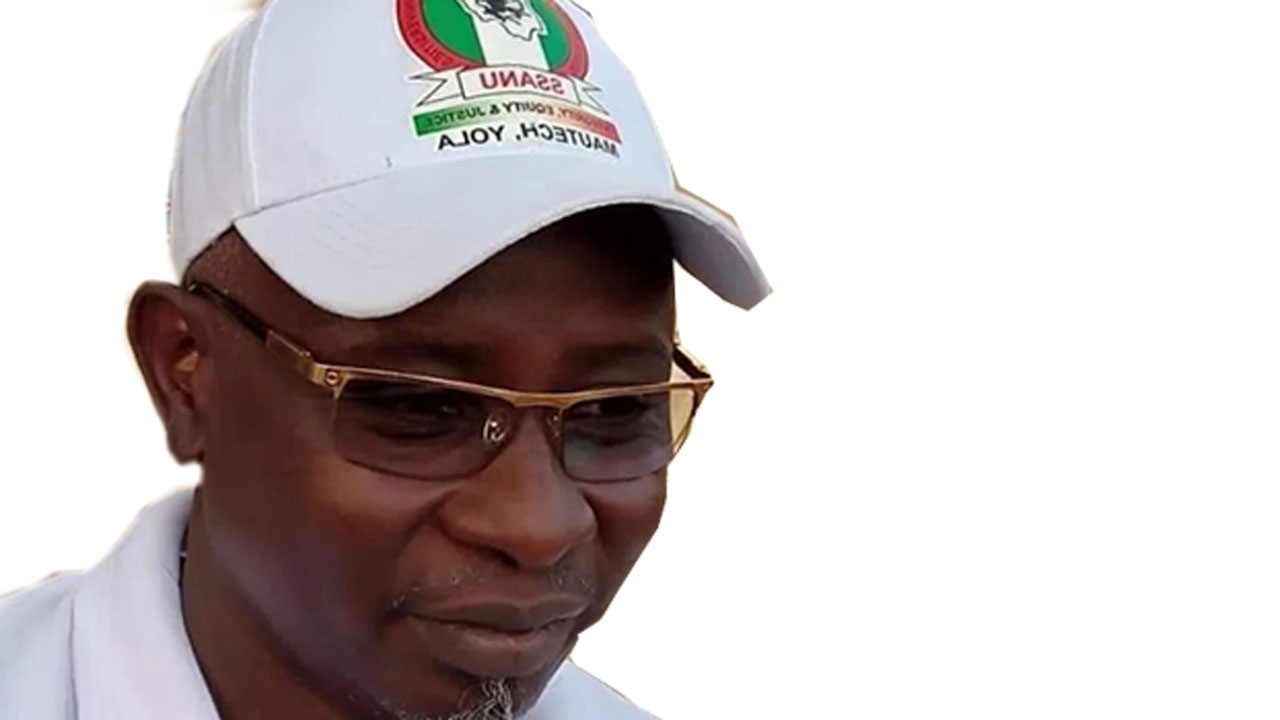
• ASUU accuses NITDA of frustrating UTAS, COEASU urges FG to embrace the platform
• Inuwa tasks ivory towers on entrepreneurship
The Joint Action Committee (JAC) of the Non-Academic Staff Union of Educational and Associated Institutions (NASU) and Senior Staff Association of Nigerian Universities (SSANU), yesterday, hinted at an indefinite strike on the expiration of the current two-week warning strike that began last Sunday without further notice if the agreements with the Federal Government is not implemented.
The body also said it would soon meet the Nigeria Governors’ Forum (NGF) on a solution to inadequate funding of state universities in the country.
JAC’s spokesman and Vice President of the Nigeria Labour Congress (NLC), Peters Adeyemi, who made the disclosure in Abuja, lauded the labour centre’s intervention in the unending industrial crises rocking the education system.
On the joining of state universities in the strike even when the agreement is between the unions and the Federal Government, Adeyemi argued that state varsities “are suffering from a paucity of funds” more than the federal-owned ivory towers.
Adeyemi, who is also General Secretary of NASU, commended students, under the auspices of the National Association of Nigerian Students (NANS), for supporting the struggle for a better university system in Nigeria.
While blaming the government for the incessant strike in the education system, he alleged that a Memorandum of Action (MoA), signed on Thursday, February 20, 2021, preceded by a Memorandum of Understanding (MoU), inked on Tuesday, October 20, 2020, had not been implemented till date.
Both pacts were at the root of the ongoing industrial disharmony, the scribe added.
Adeyemi noted that the same issues had led to previous Collective Bargaining Agreements with the Government in 2017 and 2018 before the pacts were struck in 2020 and 2021.
According to him, the contentious issues are inconsistencies in payment with Integrated Personnel and Payroll Information System (IPPIS); non-payment of earned allowances; non-payment of arrears of national minimum wage and its consequential adjustment; poor funding of state universities; delay in the renegotiation of the 2009 agreements; non-release of white papers of visitation panels; usurpation of the headship of non-teaching units in clear violation of conditions of service and establishment procedures and non-payment of retirement benefits to outgone members.
The JAC said its University Peculiar Personnel and Payroll System (U3PS) accommodates all peculiarities of the university system and remains a multi-tenant system that includes employees’ salaries, bonuses, deductions, generation of pay advice and financial reports using accounting’s best practices, arguing that the platform “is the solution to the problems encountered through IPPIS.”
THIS is even as the Academic Staff Union of Universities (ASUU) accused the National Information and Technology Agency (NITDA) of “deliberately frustrating the deployment of the University Transparency and Accountability Solution (UTAS) payment platform in the nation’s public tertiary institutions.
It described the agency’s stance as mischievous, insisting that UTAS is the “most preferred and more university-inclined” homegrown payment policy that “is better than the IPPIS.”
Addressing a press conference, yesterday, in Katsina State, the union’s Coordinator in charge of Sokoto Zone, Comrade Jamilu Shehu, maintained that the non-implementation of UTAS and other issues were reasons behind the lingering face-off.
He warned that so long as UTAS and other pending issues are not addressed by the government, public universities would remain closed for days to come.
The zone comprises Usmanu Danfodio University, Sokoto (USDUS); Umaru Musa Yar’Adua University, Katsina (UMYU); Kebbi State University of Science and Technology, Aliero (KSUSTA); Sokoto State University, Sokoto (SSU) and the Federal University Dutsinma (FUDMA).
SIMILARLY, the Colleges of Education Academic Staff Union (COEASU) has urged the Federal Government to accept UTAS as a payment solution in all tertiary institutions nationwide.
Its President, Dr. Smart Olugbeko, who made the appeal in Abuja, yesterday, stressed that the functions and structure of tertiary institutions were different from mainstream ministries.
He observed that the challenge created by the IPPIS has been a great source of worry and constituted one of the major issues prone to the industrial crisis in the College of Education (COE) system.
Olugbeko added that the payment system also “enables the government to impose baseless deductions under the guise of a new tax regime shrouded in calculative mysteries at the detriment of our members.”
MEANWHILE, to stem rising unemployment gaps in the country, NITDA’s Director-General, Kashifu Inuwa, has challenged universities to devote greater attention to entrepreneurship to produce graduates that would be job creators and not job seekers.
Inuwa gave the challenge while receiving the management of Federal University of Agriculture, Zuru, Kebbi State, under the leadership of the Vice-Chancellor, Prof. Musa Isyaku Ahmed, in Abuja.
The NITDA boss, in a statement, yesterday, described the university’s role in finding a lasting solution to Nigeria’s unemployment as critical, in view of the large number of young people graduating yearly.






